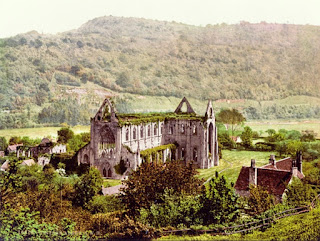Also Read
The poem, Tintern Abbey, is a sort of spiritual autobiography of Wordsworth. As Prof. Myers has said, they (the Lines etc.) say in brief what it is the work of poet's biographer to say in detail". Thus the poet traces for us the successive stages in the development of the poet's relation to and love of Nature. Four distinct stages are discernible, in the first stage the poet felt the "coarser pleasure of my boyish days" in the presence of Nature. It was "simply a healthy boy's delight in the freedom of open air. "He found pleasure in stealing a boat and rowing it over or robbing the eggs of birds on the tree or skating (as Wordsworth relates in his autobiogiaphical poem, The Prelude). The pleasures were crude, but they suggested the glad animal movements of the boy. There was mixture of joy and fear in the experiences of the boy. In the second stage the sensuous beauty of nature was loved with an unreflecting passion - the kind of passion which fournd such full expression in the poetry of Keats" (Hudson).
 |
| Tintern Abbey |
It was at this season that Nature was all in all to him. The sounding cataract haunted him like a passion, the tall rock, the mountain and the deep and gloomy wood, their colours and forms were then to him an appetite, a feeling and a love. It is evident that the grand and vast objects of nature appealed to him now. His minute observation of the homelier aspects of nature came later. Wordsworth, at the stage was a sensationalist. He perceived beauty through senses only. He considered that the senses are the only sources of delight and knowledge. He was a believer in the sensationalist theory of the eighteenth century-philosopher like Locke.
Yet he was not long to remnain thus. During his early manhood he had undergone a profound spiritual crisis (hearing often times the still-sad music of humanity). The time is past, when nature gave him "actirng joy" and "dizzy raptures". The third stage of his attitude to Nature relates to his contemplation of Nature with sober eyes. He has come to look upon thhe sorrows and sufferings as a part and parcel of the scheme of life. This experience has chastened and siubdued his spirit and sobered his vision. He hears the still sad music of humanity, and nature and man become linked in his vision. As he says "I have learned to look upon nature, not as in the hour of thoughtless youth". He has now got a deeper understanding of nature. In the fourth stage he perceives an indwelling spirit in all aspects of Nature and in the mind of man. He has now a sublime sense of an all-pervasive spirit in nature :-
"Whose dwelling is the light of the setting sun,And the round ccean and the living air.And the blue'sky and in the mind of man."
This is Wordsworth's pantheistic creed. This he has got by a sudden illumination. He attains a serene and blessed mood leading to the complex suspension of physical sense and he sees into the life of things. This is a beatific vision, a mystical rapture.
Between this spirit in nature and the mind of man there was a pre-arranged harmony which enabled Nature to communicate its own thoughts to man and man to reflect upon it, until an absolute union between them was established S. Brooke). It is by tearing himseif from this soul in Nature that man has made himself so miserable." Nature is now a source of consolation and moral strength to the poet.
Tintern Abbey is a great reflective poem. It proclaims the fate of Wordsworth that a deep contemplation of the nature can lead a man to the beautiful transcendental world. The poem reveals Wordsworth's deep and passionate love for nature. To the poet the nature is always alive and it brings all the treasuries for the person who loves her. Being a lover of nature Wordsworth literary worship nature. Nature according to him never betrays the heart of them who love her. In the poem Wordsworth believes that there is a presence of a indwelling spirit, which into every object, gives freshness and beauty. According to him there is a sublime presence of divine soul manifesting itself in to object of nature. And I have felt that disturbs me with the joy of elevated thoughts.
The contemplation of this spirit in nature fills him with lofty thought. To him nature is the guardian of his heart, the nurse and guide to his moral life. Nature is ministering angel to his whole existence imparting on him moral and spiritual pleasure. Then the poem Tintern Abbey becomes a great manifest of the high to which inspiration from nature is attained its full.